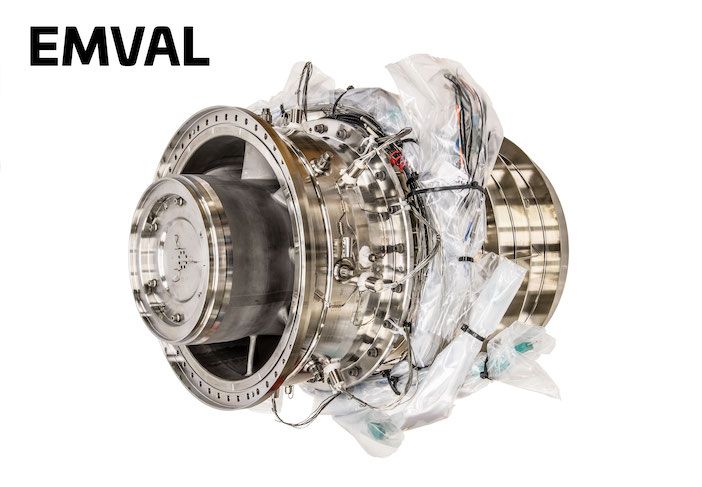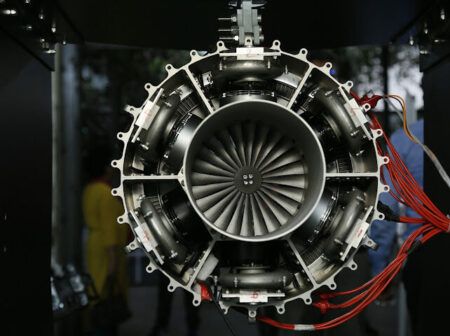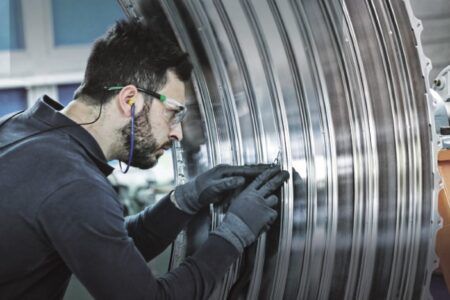Engineers from GKN Aerospace in Sweden have delivered a high temperature, more energy efficient jet turbine exhaust to engine maker MTU in Germany ready for ground testing later this year.
The Turbine Exhaust Module to MTU uses innovative materials and a lightweight design to be 20% lighter than existing turbine exhausts and can withstand 150°C (303˚F) higher temperatures. According to GKN, these features result in increased engine efficiency and lower fuel burn.
The Turbine Exhaust Module has been developed as part of an EU demonstrator project called EMVAL (Engine Material VALidation) under its Clean Sky 2 program. EMVAL aims to validate new materials and designs for introduction in the next generation geared turbofan engines
GKN Aerospace engineers in Trollhättan Sweden, designed, developed and delivered the new Turbine Exhaust Module to enable better heat dissipation and performance in aero-engines and therefore improve the efficiency.
The next steps for the EMVAL engine demonstrator will be the development and testing of a new MTU turbine module and a new GKN Aerospace turbine exhaust module, using an existing turbo shaft engine modified as test vehicle. The ground testing of the full-scale integrated engine demonstrator is scheduled to happen later this year at MTU and is seen as a key milestone in validating the concept.
The module from GKN Aerospace includes a novel lightweight turbine exhaust case (TEC) design with separated thermal and mechanical functionality. It has been produced with extensive use of additive manufacturing (AM).
The TEC consists of an inner load carrying structure and aerodynamically shaped vanes, also known as heat shielding fairings. This concept can withstand higher temperatures than current TEC’s, but it also saves weight as the axial length can be reduced.
Lars Ellbrant,technology programme manager for the exhaust module development at GKN Aerospace said, “This type of demonstrator project is vital for GKN Aerospace to validate our new technologies at high TRL levels five to six using a full engine test together with international partners.”





